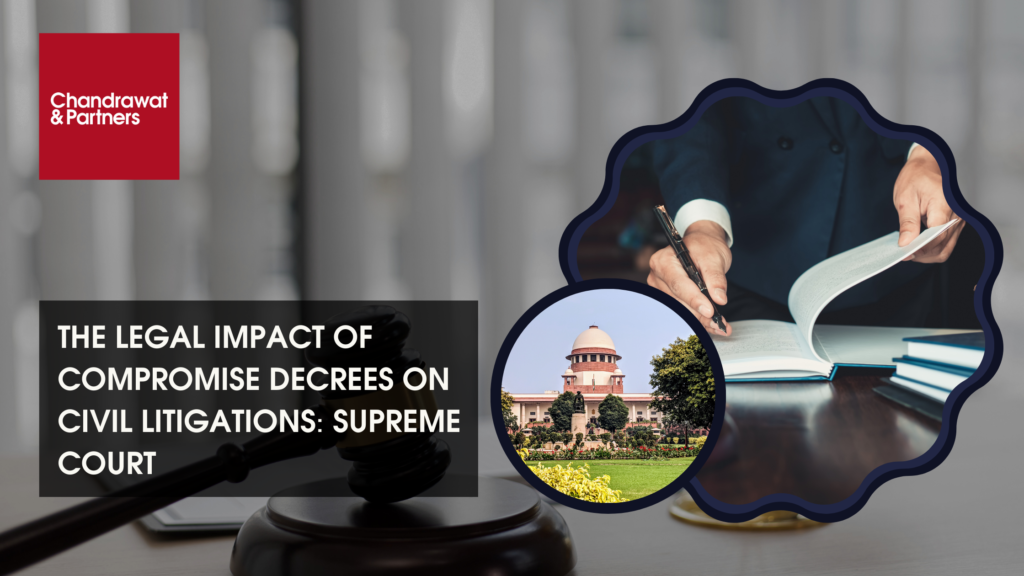Home > Recent Judgements > The Legal Impact Of Compromise Decrees On Civil Litigations: Supreme Court
DEC 21, 2024
BACKGROUND
In case Navratan Lal Sharma versus Radha Mohan Sharma & Ors. said the details in the initiated the between the two parties compromise, which was recorded by the court under Order 23 Rule 3 of the Civil Procedure Code (“CPC”), 1908 . However, one of the parties did not follow the terms of the compromise, so the other party filed a recall application to restore the compromise proceedings.
In the Rajasthan High Court had dismissed the recall application, saying that because the compromise did not specifically allow for the appeal to be restored, the application could not move forward. The party who was unhappy with this decision then went to the Supreme Court to challenge the High Court’s ruling.
KEY ISSUES
- Whether Compromise Decree Be Challenged After it is Recorded?
- Whether the Restoration Application Barred if the Compromise does Not Grant Liberty to Restore?
- Whether it is Filing a Fresh Suit or Appeal Allowed in Case of Non-Compliance?
JUDGEMENT
Court has concluded that the right to ask for the restoration of compromise proceedings is a legal right under the CPC. The court decided that even though the compromise order did not directly say that an appeal could be reopened, it does not stop someone from asking to cancel the order.
According to the Civil Procedure Code 1908 you cannot file an appeal or a new lawsuit to challenge a compromise decree. The court that first recorded the compromise is the right one to hear any request to cancel the order.
The court also emphasized the importance of following legal procedures. It said that when a legal remedy is available, the court cannot take it away. People have the right to use the legal options given to them, and the court should not impose unnecessary limits.
IMPACT OF THE RULING
The impact arising from this ruling will be highly sentimental to parties to compromise agreements in civil causes. It confirms the necessity for individuals to adhere to the conditions of the agreement that precisely defines each side’s obligations; in case of violation of the said terms and conditions the affected party has the legal right to request that proceedings be resumed. The judgment also makes sure that other remedies under the statute cannot be barred under procedural hurdles for restoration in the country.
Moreover, the court’s ruling strengthens the significance of the CPC provisions of the law under discussion that is intended to offer definite and clear-stipulated way to address controversies.
OBSERVATION
The Supreme Court’s decision about restoring compromise proceedings shows how important legal options are in civil cases. The ruling makes sure that people involved in a compromise agreement can challenge if it is not followed and ask for the case to be reopened if needed. By supporting the right to file a recall request, the Court has made the legal system stronger and protected people’s rights under the CPC.
For more information or queries, please email us at
enquiries@chandrawatpartners.com





